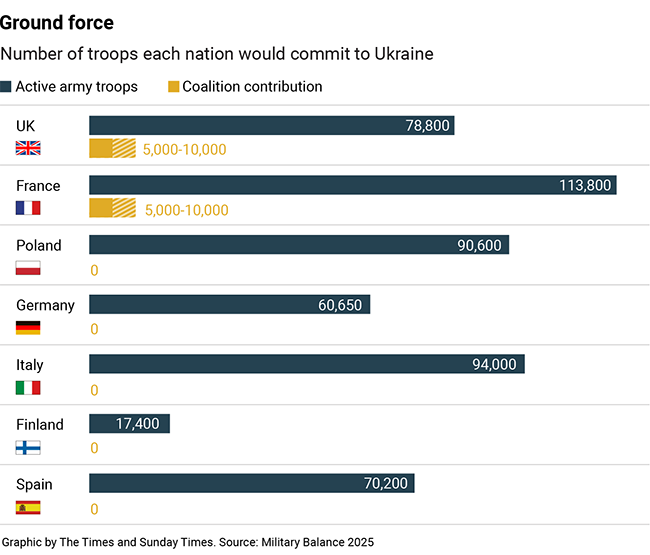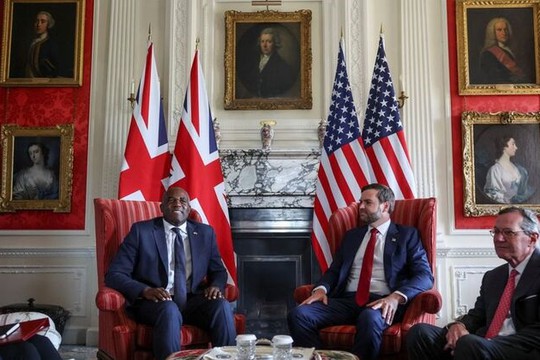U.S. Vice President JD Vance (right) meets British Foreign Secretary David Lammy (left) at Chevening House in Sevenoaks, Britain, August 8, 2025.
Photo: Reuters
Europe needs to “step up and take a bigger role” in funding Ukraine in its war against Russia, JD Vance, the US vice-president, said on Sunday, ‘The Times’ quotes.
Speaking to Fox News, he claimed Americans were “sick” of spending their tax dollars abroad and Washington was “done funding” Kyiv.
“If you care so much about this conflict, you should be willing to play a more direct and a more substantial way in funding this war yourself,” he said.
He spoke as European leaders again scrambled to build a united defence behind Ukraine, after President Trump suggested he may cut a deal with President Putin that could mean Ukraine has to concede territory.
The so-called “coalition of the willing” — a multinational force led by the UK and France intended to support Ukraine and potentially monitor a ceasefire — looks highly unlikely to meet Sir Keir Starmer’s original hopes of 64,000 troops on the ground.
The Kremlin has also said it will not accept western troops in Ukraine, warning that their presence could trigger a new world war. Even if Putin were to agree, European defence ministers have said there is “no chance” they could reach the 10,000 troops floated by the UK. Even 25,000 as a joint effort would “be a push”, The Times reported in April.
“Russia has 800,000 [troops],” Dovile Sakaliene, Lithuania’s defence minister, told European counterparts. “If we can’t even raise 64,000 that doesn’t look weak — it is weak.”
It falls far short of the 200,000 troops that President Zelensky estimated in January were needed to credibly enforce peace across Ukraine’s extensive front line and to prevent a new Russian attack after any ceasefire deal. Experts put the figure at closer to 600,000.
So far, the UK and France are the – only countries to have committed a specific number of troops. Finland is – reportedly concerned that any deployment would “dilute” its own border – defences, while Poland, Spain and Italy have made clear they will not commit any soldiers. Estonia has said it may only be willing to send a company-sized combat unit of ground troops.

Proposals have so far been hampered by shortages of manpower, political reluctance and logistical hurdles around the rules of engagement.
Financially, Europe overtook the US as the biggest supplier of aid to Ukraine in June, with about €72 billion in military aid compared with the US’s €65 billion, according to the Kiel Institute’s Ukraine Support Tracker…
European diplomatic efforts are significant but, without military backing, risk being symbolic. The ability to uphold Ukraine’s territorial integrity depends on sustained US commitment of weapons, troops and political will.
read more in our Telegram-channel https://t.me/The_International_Affairs

 9:42 12.08.2025 •
9:42 12.08.2025 •























